Let’s be honest—most marketing fails aren’t spectacular explosions. They’re slow, silent assassinations carried out by lazy writing, clueless assumptions, and business owners who think “quality, service, selection” is a personality.
In this episode of Advertising in America, Ryan Chute, Chris Torbay, and Mick Torbay break open the vault of tragic (and hilarious) marketing disasters—from Chevy’s “Nova” debacle to Subway’s catastrophic Jared endorsement—and extract the lessons every smart advertiser should tattoo on their forehead.
They dismantle the false belief that great ideas travel universally, warn against putting your reputation in the hands of celebrities (or yourself), and explain why unforgettable brands rely on campaigns—not one-off “killer ads.”
Because if your commercial is remembered but you aren’t… you just paid to promote entertainment. Not your business.
Episode Highlights
- Why translating your campaigns literally can kill it figuratively
- The hidden danger of celebrity spokespeople (even “safe” ones)
- How lazy writing quietly sabotages your brand
- Why “cute and clever” gets crushed by “campaign-able”
- The tragic fate of ads people remember—but can’t attribute
- The secret sauce behind long-term brand-building
🎧 Hit play—and let’s make sure your next campaign plays everywhere… not just in Peoria.
📱 Subscribe wherever you get your podcasts
👉 Two Questions:
- Is your ad unforgettable—or just your joke?
- And if people remember your story... does it actually lead back to your brand?
💥 Brought to you by Wizard of Ads® for Essential Services
In today's episode of Advertising in America, we look at the tragic mistakes marketers make.
It's fun to learn from other people's mistakes, isn't it? Other people are so stupid. I'm glad I'm not as stupid as other people.
I can think of a couple of marketing fails that stick in my memory, and while they might not be the most famous or the most tragic, I'm choosing the ones from which we can learn something.
Jared Fogel became famous by claiming he lost 200 pounds by eating nothing but Subway sandwiches for something like a year. It was big news, and Subway jumped on the Jared bandwagon quick. Subway went all in on Jared. The only problem was that Jared had a secret, and when he was charged with sexual misconduct with minors, it put a damper on his whole career as a sandwich celebrity.
One of the oldies but goodies was Chevrolet's attempt to launch the Chevy Nova in South America. After a few months, sales just refused to take off until someone pointed out that "Nova" in Spanish and Portuguese, which means “doesn't go.”
Ryan Chute: The greatest lessons are forged in failure. So let's fight through some real follies. First, here's Chris to focus on a few fabulous fumbles and bumbles, Chris.
Chris Torbay: In marketing, there are some great stories of big, respected, should-have-known-better brands doing things that went famously wrong. And while they're good fun to laugh at, because we personally never make mistakes, we can also learn from what went wrong. And usually it's something pretty basic.
One of the oldies but goodies was Chevrolet's attempt to launch the Chevy Nova in South America. It was selling well in North America. Hey, let's rinse and repeat and roll it out in South America and rake in the profits. After a few months, sales just refused to take off, and the executives were baffled until someone pointed out that Nova sounds like Nova in Spanish and Portuguese, which means doesn't go. Yeah, not a good name for a car.
The other similar one was the rollout of Coca-Cola's Coke Adds Life campaign in the nineties. Somehow, the Chinese translation of this global tagline ended up closer to “Coke, brings your relatives back from the dead,” which you know, it doesn't.
The lesson from these two famous fails starts with your audience.
Who are they? What do they know? What do they like? What's their experience? What language do they speak, and how do they engage with your product or even your category? And just because your idea resonated with one group of people answering these questions doesn't mean it will work on a group with different answers.
In the Vaudeville era (the most popular form of American entertainment from the mid-1880s until the early 1930s), Groucho Marx asked the question, “Will it play in Peoria?” By which he meant, is this a lot of New York comedy for New Yorkers, or is this stuff that is universal? And that's a good question to ask. Politicians have picked up on it ever since. John Ehrlichman in the sixties, Ronald Reagan in the eighties, it was a way of asking their own people whether the things they were going on about in their speeches were too elite or suitable for the masses and no, people from Peoria, it doesn't mean that Washington thinks you're a bellwether of strategic judgment.
What politicians mean when they ask “Will it play in Peoria” is, will dumb people get it?
But that's a fair point in marketing. People just aren't paying that close attention to your dumb commercial in the first place, unless you make it relevant and compelling to them and speak their language. Know enough about your market to know what people are like, what they need, and what they think. And don't just assume that something that works in one market is gonna crush it in another, or what's meaningful to you is automatically meaningful to them. There's a reason Japanese companies don't run the Japanese commercials in America. Go ahead, Google them. You’ll see.
Ryan Chute: Only bell ends use words like bellwether. Chris, such a knob. Mick, have you put up with your brother for so long? You deserve an award. What are some doozies you've learned from your years in marketing mayhem?
Mick Torbay: I can think of a couple of marketing fails that stick in my memory, and while they might not be the most famous or the most tragic, I'm choosing the ones that we can learn something from.
And so the first one I'll mention is Subway, and of course, Jared. Jared Fogel became famous by claiming he lost 200 pounds by eating nothing but Subway sandwiches for something like a year. It was big news, and Subway jumped on the Jared bandwagon quick, perhaps too quick to do a routine background check.
Subway went all in on Jared. The only problem was Jared had a secret, and when he was charged with sexual misconduct with minors, it put a damper on his whole career as a sandwich celebrity. He's in prison now. So that story has a somewhat happy ending, but not so much for his victims or for Subway. It's all well and good to distance yourself from a child molester, but it would be better not to be connected to one in the first place.
When you tie your brand to a celebrity, you get the benefit of everything that's good about that celebrity and also what’s bad. And just because everything is good now doesn't mean that it can't change. People do bad, stupid, illegal stuff. That's the trouble with people. So when you're using people, choose them carefully, and you might think, “I can make sure that doesn't happen to me. I'll just put myself in the ads. I have no baggage. I have no skeletons in the closet. I'm squeaky clean.” Are you?
We had a client in Florida who managed to get himself a rather public driving, while intoxicated charge, and lucky for us, he wasn't the star of the TV commercials that would complicate things. Remember, if you're the business owner or anyone driving a truck wrapped with your company name, everything you do is a representation of that business, of the brand.
If you cut somebody off, the company cuts somebody off. If you get pinched for doing something bad or stupid or worse, it's your company that takes the hit. That is a tragic marketing mistake.
Actors can be replaced. They could replace the Geico lizard with another lizard if the original lizard did some really bad reptile stuff. I'll bet JELL-O (owned by Kraft Heinz) was thanking their lucky stars they hadn't been featuring Cosby on their commercials for a decade or so. Just imagine how ugly it would be if they had to quickly remove an accused rapist from all their packaging and marketing materials, and who would've guessed a guy like him? He'd never do anything bad, right?
Humans, we suck.
Choose your partners very carefully, and if you're putting yourself forward or allowing yourself to be put forward, that means you can't drive after drinking. You can't tweet your controversial opinions, and you can't take your girlfriend to a Coldplay concert if you're married to someone else. It's hard enough to do good marketing when you do all this stuff right? Don't make it harder.
Ryan Chute: I'd be willing to bet. Jared enjoys several happy endings a week in prison. I hear he still allegedly prefers the six-inch option, though, allegedly. When we return, we'll discuss the pitfalls to avoid and the roadblocks to hurdle, but first, a word from our sponsor.
Ryan Chute: All right. Let's move from the epic fails into the silent killers of good advertising. The ones that don't make headlines, but quietly sabotage good brands every day. Mick.
Mick Torbay: One thing we have to be careful about when we're talking, discussing a topic of essentially what not to do, it is possible to take the wrong lesson from that and say, then we'd better just not do anything risky or interesting or controversial. And that's not a solution either, because if you simply say if all we do is we just narrow our message down to quality, service selection, price, convenient location, free parking to professional staff who really cares about your needs, then we can't go wrong. It's no, actually, that's wrong too.
Like we're still talking about good marketing, we're still talking about marketing that's gonna move the needle. You do have to do things that are risky. You do have to do things that stand out and move the needle and shake people up and disrupt the consumer's mindset to get them to think something new. For goodness' sake, don't simply say, then let's just aim for the middle where it's safe. Safety is actually, yeah.
Chris Torbay: Boredom is also a tragic fact.
Mick Torbay: Boredom is bad, too.
Chris Torbay: And one of the reasons that list of things that you rhymed off maybe is great. In my examples, it was people who made language mistakes, right? They didn't understand the translation of Nova. They didn't understand the translation of the Coca-Cola thing. That's not really a risk, I guess, for a lot of our clients, but the idea of speaking in the language of the business and not speaking in the language of the consumer, I think really is.
When you see these ads that say quality service, selection, low prices, plenty of free parking, all those sorts of things, that's the business saying, “here's all the things we'd like to say about our business”, as opposed to saying, I wonder what it is that our consumers are interested in. What's on their minds? What's bugging them? What are the problems they need to solve? What are the challenges they're faced with? How can I address those things? And so again, that's about knowing who your consumer is and work backwards from them. What are they faced with? And then how can you position all of your stuff in a way that helps them?
And maybe that's where the speak in the right language metaphor actually translates to reality.
Ryan Chute: What I'm hearing from you is both is your brand story isn't necessarily the story of your brand. And what I mean by that is it may not be the origin story of the owner of the company and the legacy that he or she is carrying on. It may be just some outrageous character that's fighting an injustice in the world.
Like the HL Bowman or the the villain character that's not really a villain, that anti-hero of Billy Ray's hole digging, and being able to create a feeling around, in a lot of cases for who we work with, a home service company, but even with retailers and professional services like legal and medical, all need to have these more interesting than what your business actually is advertising, to get you noticed so that you can have something far more meaningful than the table stakes. Far more, far less risky than an endorsement spokesperson who may or may not be a good representative.
There's loads of times when we have clients that we would never put on the television, and that's just good business. But there's also loads of times where that makes a great idea.
Mick Torbay: These stories need to be curated, right? Everybody's got a story, but nobody's story is palatable in its entirety. There's always going to be some things we're going to want to skip over. And there's gonna be some things that we wanna focus on. And in a sense, it's the job of your ad guy to make sure that we're pointing the spotlight at the stuff that's gonna resonate with the consumer, and maybe not so much light up the part where maybe you did time in prison, or were struggling with addiction. These are all real human things; I gave two examples that two of my clients have faced. It's not that we're judging people for that. It's just that we also understand that the consumer is not necessarily able to look at those big pictures the way we might hope.
Chris Torbay: They just wanna know the part of your story, which is relevant to them, and they don't wanna know the other stuff. And this is what reality TV has always been about. We all know reality TV isn't real. They shoot and shoot, and then they decide, “If we grab this here and this here, it'll look like there was a real conflict between these two people,” and so you pick and choose the parts that you think tell a good story.
And so pick and choose the parts that you think tell a good story to your consumer about why you are the person they should be interested in, or why your business is the one they should patronize.
Ryan Chute: So it is truthful about your brand, but it is not a perfectly true, perfectly aligned story. It is a curated, well-positioned, well-structured story structure to make good movies.
Mick Torbay: Yeah, but to Chris's point about language, there's another mistake that people can make without knowing it. And this is a mistake that the client can make is to use language that is typical within their business. And they will sometimes encourage people to use this language just because they say it all the time, and they'll think it sounds normal.
Give you an example. If you go to an appliance store and look at those things that wash clothes, you and I would call that a washer and a dryer, and the appliance store will call those “equipment laundry.” Whereas we think laundry is the stuff that comes out of it at the end.
So if you leave the client on their own, they will tell you, “We're having a sale today on laundry.” And the rest of the people are like, “Why do I wanna buy somebody's laundry?” If I show you a tow-truck, you're gonna think that's a tow truck. The guy who drives it calls it a wrecker. Don't use that internal language.
Chris Torbay: Exactly. In Britain, they refer to all appliances as white goods: washer, dryer, freezer, fridges, all that stuff. They call them white goods because normally they're white. You don't call them white goods on the commercial, you No.
Mick Torbay: No, because nobody wants to buy white goods.
Chris Torbay: Nobody goes out to buy white goods.
Mick Torbay: They go out to buy a fridge. That's it.
Ryan Chute: And even when they're buying a fridge, they care much less about the fridge than they do about how the fridge is going to solve their problem. Not just keeping their food cold, but maybe an aesthetic, possibly a safety, certainly, there were times when safety was a significant issue, performance, energy consumption, how long it's gonna last if it's gonna be big enough. All of these things are features, but it's not the feature that people wanna buy. It's not even the benefits of those features that they wanna buy. It's the advantage they have of having that fridge versus not having that fridge.
Mick Torbay: All of these are examples of most advertising, and the reason why most advertising sounds the same is that it comes from the perspective of the business owner's problems, what the business owner is looking to achieve. And not necessarily what the consumer really wants out of their life. We've all heard examples where clearly the problem that is trying to be solved by the commercial, by the marketing, is that this guy bought far too many of this product, and now he's gonna make that the consumer's problem.
And it's your inability to manage your inventory that is not the consumer's problem. It's that inward focus, looking at the business and what's important to the business owner, and most advertising people will simply listen to the business owner and when the business owner says, “This is what we want to do,” they will, they'll simply do that without saying, but does it, does anybody give a shit about that?
Chris Torbay: And it comes from this idea of you focus on coming up with a great idea and forget the missed opportunity is understanding what the consumer is looking for. And you're excited about your new idea. You're so excited about this new tagline that's worked well in this market that you totally just wanna run with it and whatever, because you're so excited about your idea and you miss the opportunity to find out what are the, what people are looking for here? What are people looking for here? And the same thing happens when people do creative, where the commercials are outrageous and hilarious. And people talk about them at the water cooler, but then they forget who it's for. And I always say the biggest tragedy I hear is when people come up and say, “Hey, I saw this really great commercial on the weekend. It was like these two penguins. And they were, and then, and I forget who it was for, but it was really funny because the first penguin said this and whatever,” and it's oh my god, you've done like four fifths of what you're supposed to do as a commercial.
- You've made people excited about it.
- They're so excited about it that they wanna tell their friends about it the next day.
- They remember the entire plot of the commercial,
- and they can't link it to your brand.
You got so fixated on how great your idea was that you didn't ask yourself, is my brand being tied to this being so that whenever people think of this great idea, they a hundred percent just go straight to me and attribute all of that great goodwill to me. That's a tragic fail.
When people get it, it's often a young creative mistake or something like that. It's “Oh, I got a crazy idea,”
Mick Torbay: It's lazy writing.
Chris Torbay: It's like crazy ideas are not what we need. We need a crazy idea that just so much comes from the person you are advertising for.
Ryan Chute: I certainly have an obsession around cute and clever gets its butt kicked by campaign able every day.
If it's not campaignable, it's not going to be remembered in the way that it needs to be remembered to pull the trigger, when the trigger happens. And ultimately that's what we're trying to do here, from the jingles, and the sonic signatures, and all of the things that are used to deeply strategically, deeply scientifically, to get the customer to take an action towards our brand.
Chris Torbay: Yes. It specifically takes you, if you remember the idea, you have to make sure that in remembering the idea, there can only be one brand that answers that, so that all of that memorability and all of that goodwill gets transferred to that single advertiser.
Ryan Chute: That just circles right back to copywriting. Copywriting is the critical component here, of effective marketing or ineffective marketing. And the majority of copywriting we see is tragic. It's astoundingly bad. Setting aside celebrity spokespeople and translation issues, just in America, there are massive amounts of challenges when it comes to putting out something that sticks and makes a person feel, and gets out with enough repetition so that they actually have a chance to get past that short-term memory and get into the long-term memory..
Chris Torbay: And gets attached to a specific brand. We do it all the time. We always talk about, “it's gonna look like some beer commercial.” Why do people use that as a term? It's because all beer commercials show young, happy people drinking beer, having a good time, and socializing with their friends. Whenever you see that kind of imagery, you don't associate that with one brand or the other because all of the beers are all trying to claim that territory.
Or a car commercial. All cars are fun to drive, apparently, because every car commercial will show their car going through this impossible course.
Mick Torbay: Even if it's a minivan.
Chris Torbay: It can be a minivan. “It's the minivan that's fun to drive.” And it's “No, Porsches are fun to drive. Yours is a minivan.” Sell it on something else that's cool.
Mick Torbay: Take your kid to soccer practice.
Chris Torbay: But everybody wants to own the same territory, and so you can do a great commercial, you can find the best car commercial road that we've ever seen, but I'm not necessarily gonna remember your brand because of that.
And like each of these genres, they're all doing commercials, which are all doing the same sorts of things, in which case, a perfectly good job of it is still not gonna, I'm not gonna remember yours. It's not going to stand out. You're just like, “Man, I remember seeing that car drive over that hillside at sunset. Boy, that was great. Never gonna forget that commercial.” Yes, you are. That's what every commercial does.
Mick Torbay: Boy, you're the one who came up with that, isn't that right?
There's a lot of lazy writing out there. Let me tell you, copywriting is full of laziness. And that's where you get what Chris calls the 50/50 as where there's half of it is the nuts and bolts that the client wanted in, the quality of the service, of the selection, and then the other half is, “I wrote a really funny joke.”
Is there any connection between those two things? “No, but at least I put in the funny joke so that you would remember it.” No, that's lazy writing. Go back to the drawing board. Try that again. And make me an ad that doesn't just entertain me, but takes me somewhere that I want to go back again. That the next time I hear that distinctive sound, I know whose business this is. And I say, I want to turn the volume up this time because I want to hear what's the next chapter in this story.
Your point about campaignability, I think, is incredibly valid because I wonder where campaigns have gone?
It seems nowadays we're so enamoured with a really interesting ad. “The man, your man could smell like” [by Old Spice] brilliant freaking ad. I wish I had written it.
Chris Torbay: But it's the exceptions that proves the rule.
Mick Torbay: But it's not an example of an ad where you can do another one.
They did, in fact, do another one. Does anybody remember it? No, because it has no second chapter. And although it was strategic, it was well connected, it was for Old Spice, we all remember that. It was definitely an Old Spice commercial. So it satisfies that box that you always wanna get ticked, but what it lacked is the ability to say, okay, so what is the next story? So I don't think people will ever think of my ads as being as disruptive or crazy as the Man Your Man Could Smell Like.
But what our ads do is they make you wanna say, “What's he gonna say? What's Jesse gonna say in the next ad?” Or what's going to be the crazy thing we have to get out of, in the next chapter of this story, so that people are actually encouraged to participate in the ads rather than simply say, “Oh, it's a commercial. There's nothing for me.”
Ryan Chute: One of the other things that most people don't know about how we are writing at Wizard of Ads® for Essential Services is that these are slow, tiny micro transformations over a period of three to five years. Jesse is going through a whole situation where he's been hired straight through to,
Mick Torbay: It's a story arc. Like a procedural TV show.
Ryan Chute: And that's something to be said because people get invested in that. Oscars are won by the movies where the person at the beginning of the movie is different than the person at the end of the movie. They've changed. They're a different person now. They've gone through a journey and a transformation where the blockbuster hits of the summertime and explosions and sex scenes and violence and fun stuff, entertaining stuff. But they don't win.
Chris Torbay: And it all starts to blur together. It is like every Marvel or DC movie kind of looks like every Marvel or DC movie. You don't go, “This one was really good. Boy, they really had some stunts.” It's no, they've all got stunts. Yeah. What are we talking about?
Mick Torbay: Using your screenwriting analogy, I think that's a really good point and maybe the key to this.
In a movie, when you're writing a screenplay, when you're writing a movie, the protagonist has to be a different person at the end than he or she was at the beginning. That's how you know a good movie.
You are this person at the beginning, and at the end you're, you have transformed into something different.
A procedural is different from that in the sense that everybody, if you're gonna watch every week, they can't change; actually, they have to be the same. They change over seasons. Not over two hours, like a screen. So it's interesting you use that analogy because we use screenwriting techniques, but I focus more on the screenwriting techniques of procedural long-form television and sitcoms versus two-hour feature films.
Chris Torbay: And to wrap that all together, what's the fail?
When you talked about Old Spice, which is the exception, actually, that proves the rule.
Mick Torbay: It's like a feature film. It's a great moment.
Chris Torbay: But what's happening there is they got a killer ad. And the problem is, too often people are saying, “How can we find a killer ad?” And it is very rare that the killer ad actually does it. What normally works is the campaign, right? It's normally not that one awesome Old Spice commercial or that one awesome Budweiser Brewing Company APAC , “whatttts-up”, or that one spot really stood out. It's the seven years of “I'm a Mac, I'm a PC”, or however many years of the GEICO Gecko, where it's just episode after episode. It's the sort of false goal of “If I could just come up with a great ad, everybody would change their brand allegiance and switch to mine.” No, they need to grow over time with a brand that they have to grow to attach themselves.
Mick Torbay: They need to grow to like you and feel something. You felt something about the Mac and the pc.
Chris Torbay: You can very rarely do that with just one awesome ad every once in a while. But that's a weird goal to go for, given how rarely it works and how often the other thing works.
Ryan Chute: And the cost of doing that now, most people have no idea what kind of money is spent to develop those ads. The amount of testing, the amount of figuring out the fine-tuning of the words and the terminology. Certainly, the actors and the set design, the amount of effort and the physical set design
Chris Torbay: And the amount of wasted material. When I worked on Budweiser and when we had an entire floor of an ad agency, and when it came around to trying to get ads on the Super Bowl, we would all write a dozen ads. Each team would write a dozen ads, and we'd all take them to the creative director, and then he'd pick a few of them, and we'd take them to the client, and they would pick a few of them, and we'd take them to research, and we'd end up with two or three that made it onto the Super Bowl. But we had written literally 50-100 ads that all went in the trash.
And it's like, how much money?
Mick Torbay: And they were all one-offs?
Chris Torbay: And they're all one-offs. They are all fine. They were good enough for us to take to the creative director and good enough for the creative director to say, “Yeah, that's good. Let's take that down the street.” It's all good stuff.
Mick Torbay: But did any of them want you to come back for more, or were they all trying to be killer ads?
Chris Torbay: They were all trying to be killer ads, but then, like, how much money are you gonna spend, just with a bunch of really talented teams, just go throw in throwing ideas until you get one.
Mick Torbay: What I'm suggesting is that Budweiser should fire their agency and hire us. That would solve the problems, that would be much better. But it is crazy, though, why is Budweiser concerned with long-term growth any less than any of our clients? Like, why are they still focused on these short-term killer ads instead of coming up with a campaign that you can lean into for five to 10 freaking years?
Chris Torbay: And it won't happen with the first commercial or the third commercial, but I tell you, when you get to the 15th or 16th, people are gonna go, “You know, have you seen this? This is the thing. I’m kind of digging these.”
Ryan Chute: This is a whole thing. And therein lies the rub. There are many ways to market your business.
There are many ways that are sunk costs and are compounding investments. There are many different ways that you can get attention. Getting attention's not overly difficult; holding attention is really quite hard,
Mick Torbay: And you can't do it with lazy writing.
Ryan Chute: You can't do it with lazy writing, and you miss the big piece from holding a person's interest, particularly when you have a long purchase cycle. And that's to have them have already decided that they know, like, and trust you before they've even bought what you sell. Including the parasocial relationships you have with people that you will never sell, but they will convince somebody else to buy.
This has been an interesting topic today, gentlemen. Thank you very much.
Ryan Chute: So what's the moral of this tragic comic parade of marketing missteps? Simple. Know your audience. Don't assume what worked over there will work over here. Translation isn't just about language, it's about culture, context and meaning.
- Choose your messengers wisely, celebrities, spokespeople, and even the owner. When you tie a human being to your brand, you're betting your reputation on theirs. Make sure it's a safe bet.
- Don't waste words. Skip the table stakes. Instead, hammer home the one thing only you can say in a way, only you can say it.
- Stick the landing. If people remember your joke but not your name, you've paid for an ad that promotes entertainment, not your business. The hopeful part. Every marketer, yes, even the ones with international translation failures and creepy sandwich spokesmen, gets the chance to do better next time.
- Mistakes don't have to define your brand, but ignoring the lessons will lead to avoidable pain. So take risks, be bold, but be smart enough to learn from the flops of those who come before you, and that way your next ad won't just play in Peoria. It'll play everywhere.
Until next time, this is Advertising in America.
Thank you for joining us on Advertising in America. We hope you enjoyed the show and captured a nugget of marketing magic. Wanna hear more? Subscribe, leave a review and share this podcast with your friends. Do you have questions or topics you want us to cover?
Join us on our socials @advertisinginamerica. Wanna spend your marketing budget better? Visit us at wizardofads.services to book your free strategy session with Wizard Ryan Chute today. Until next time, keep your ads enchanting and your audience captivated.



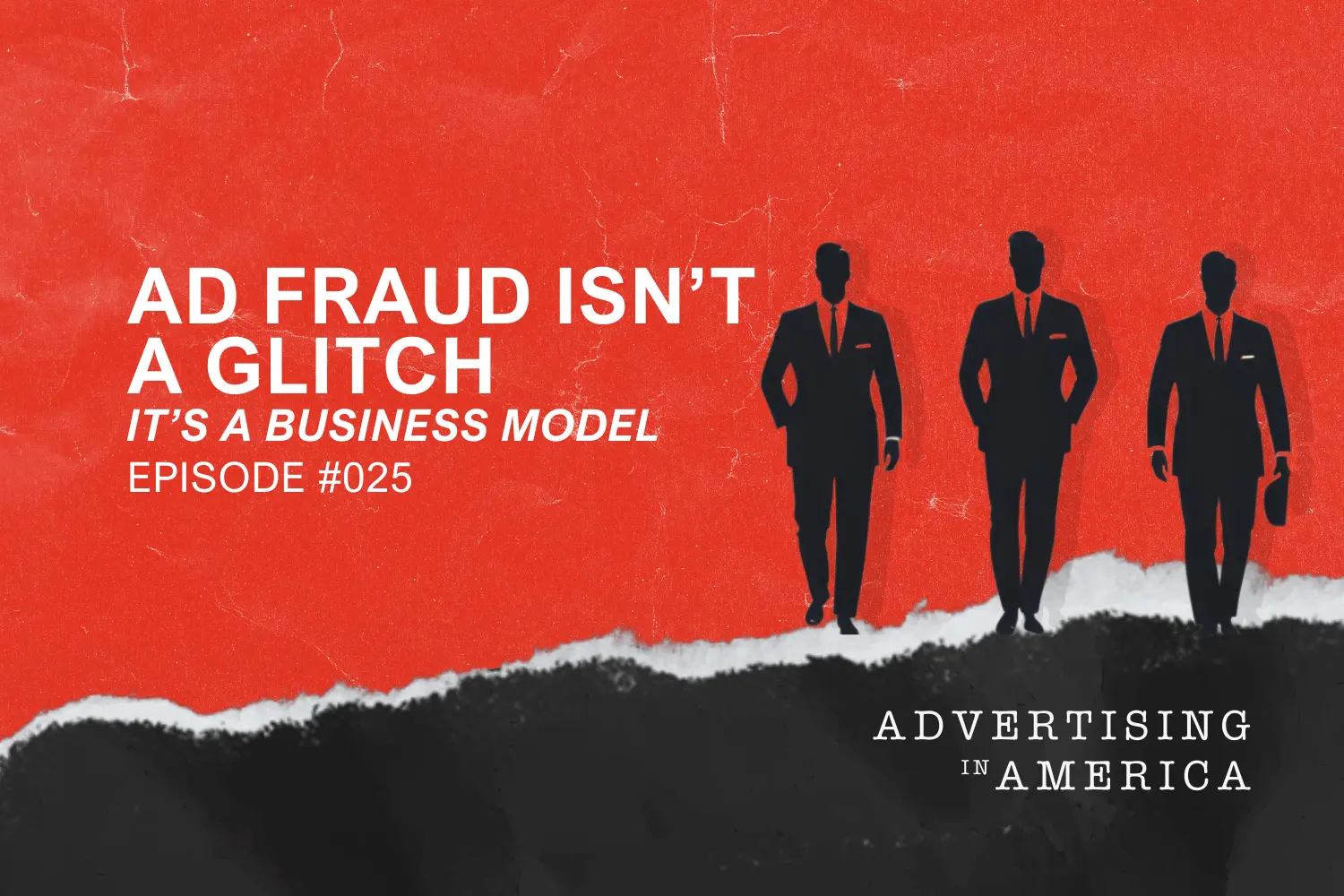
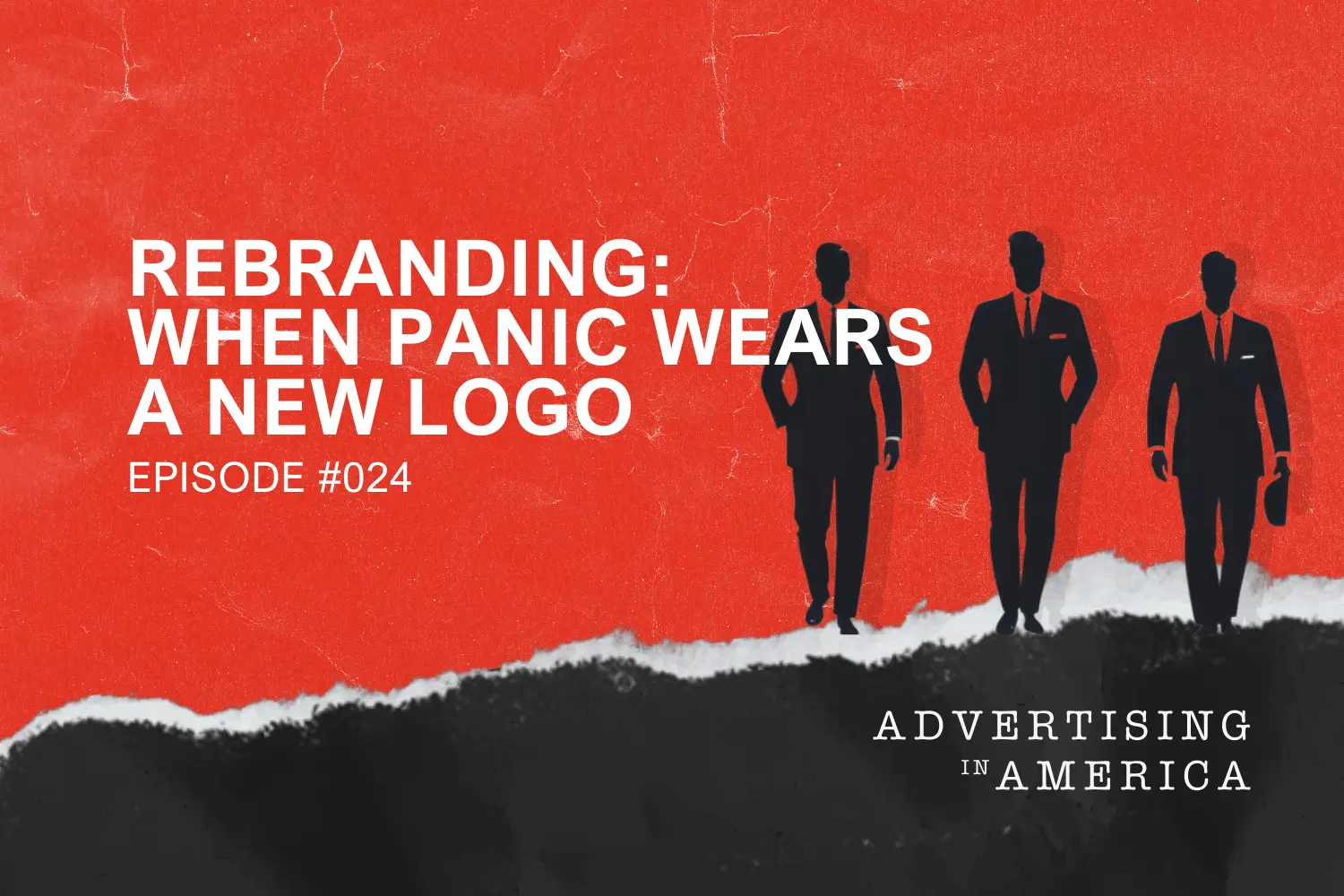
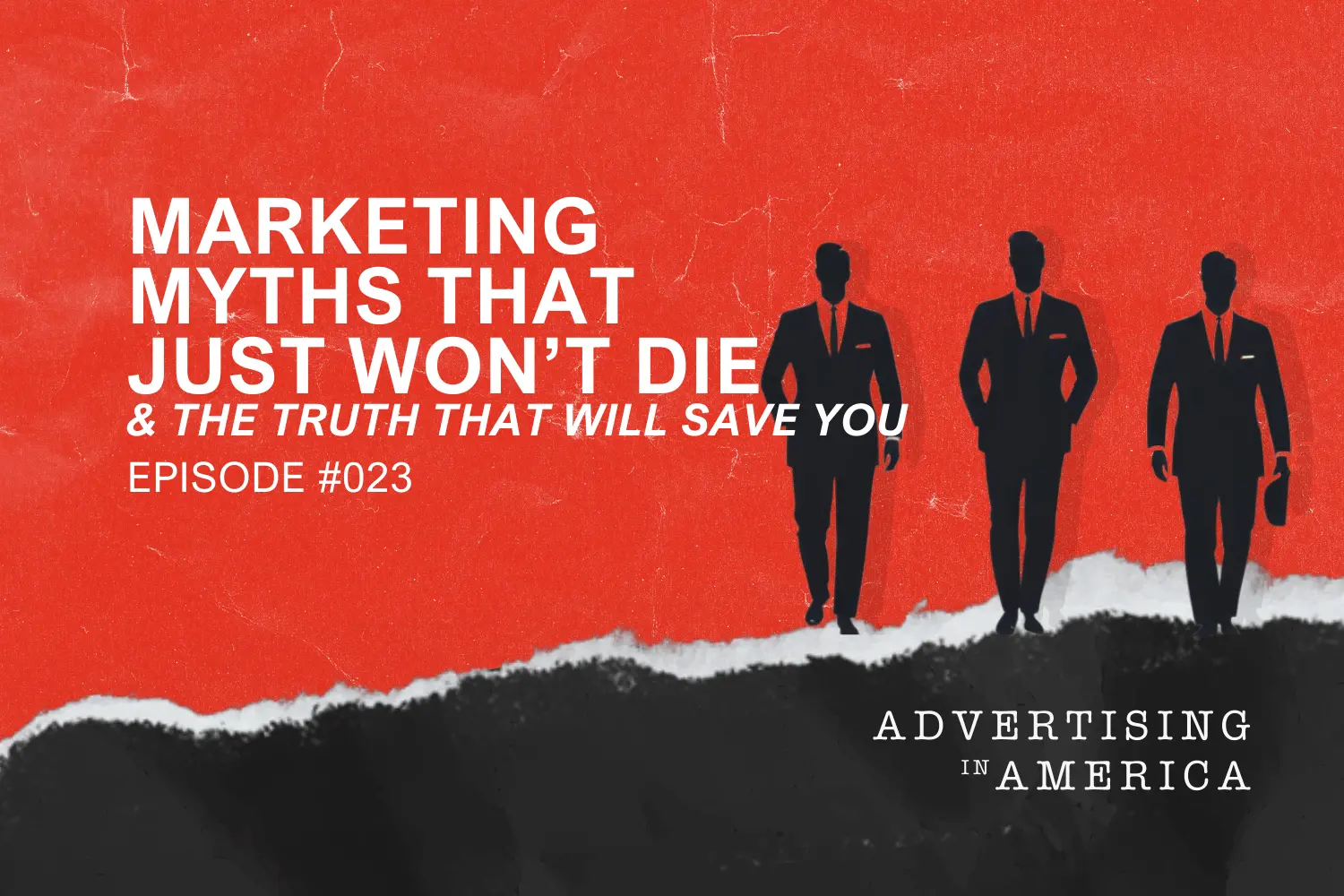
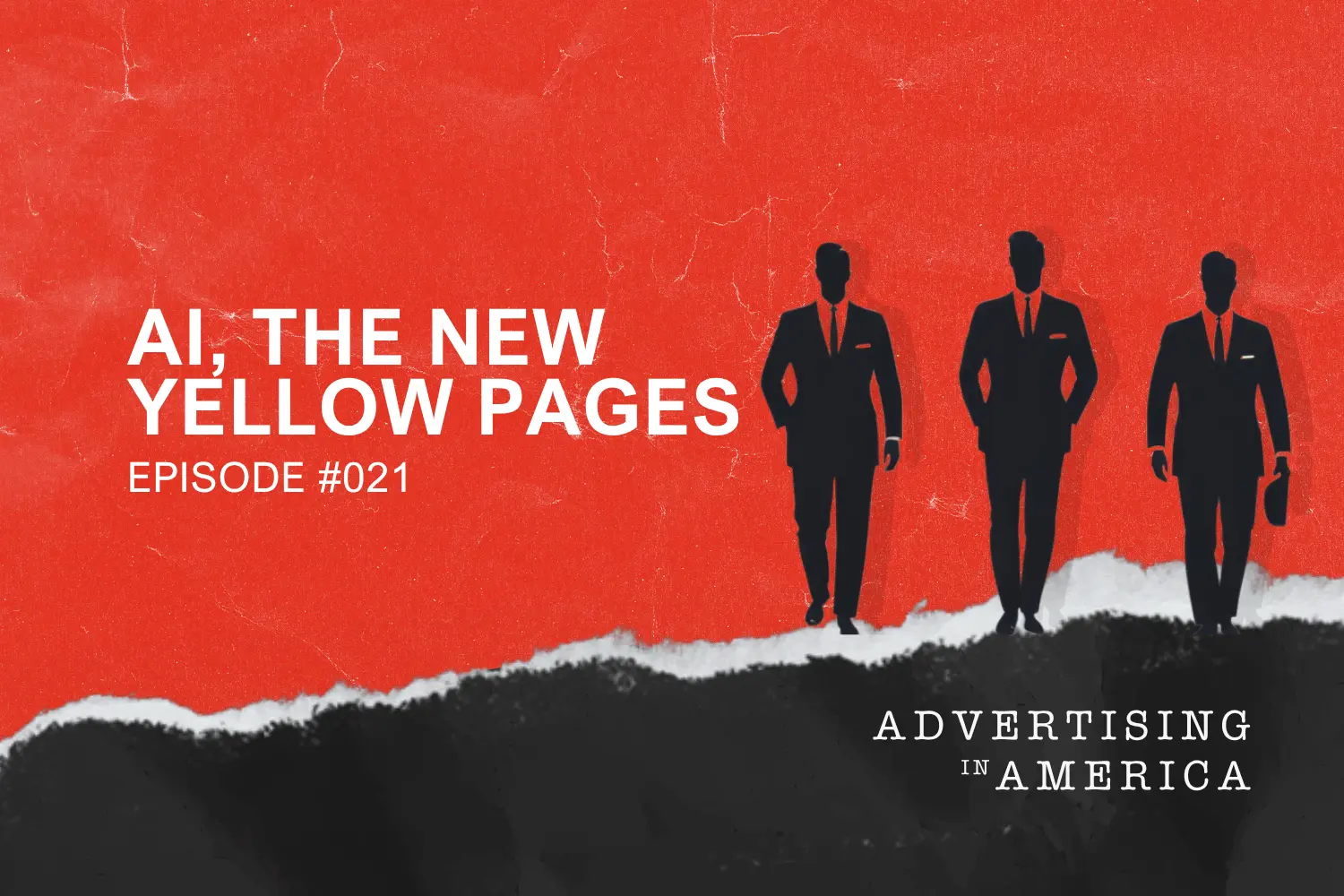

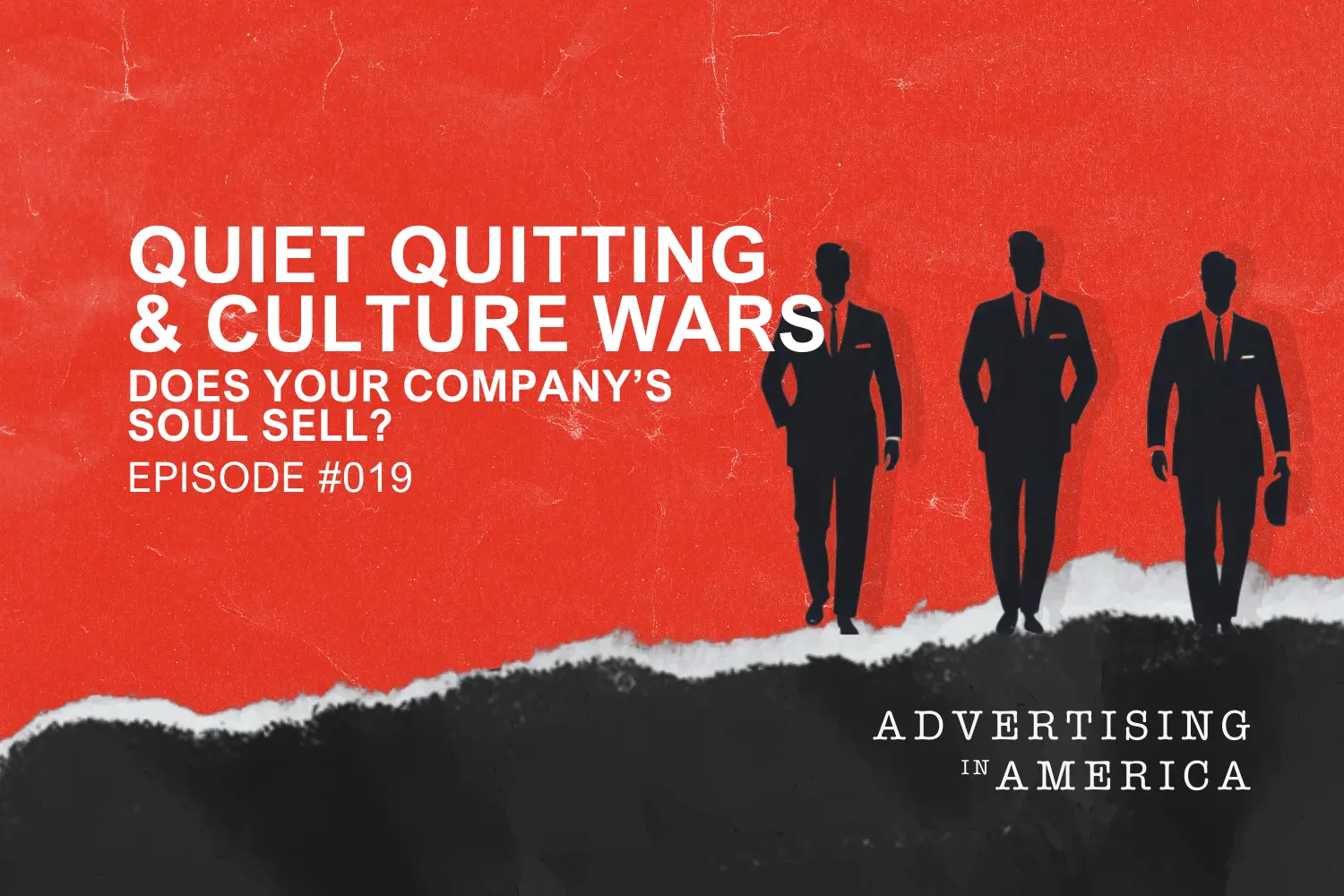
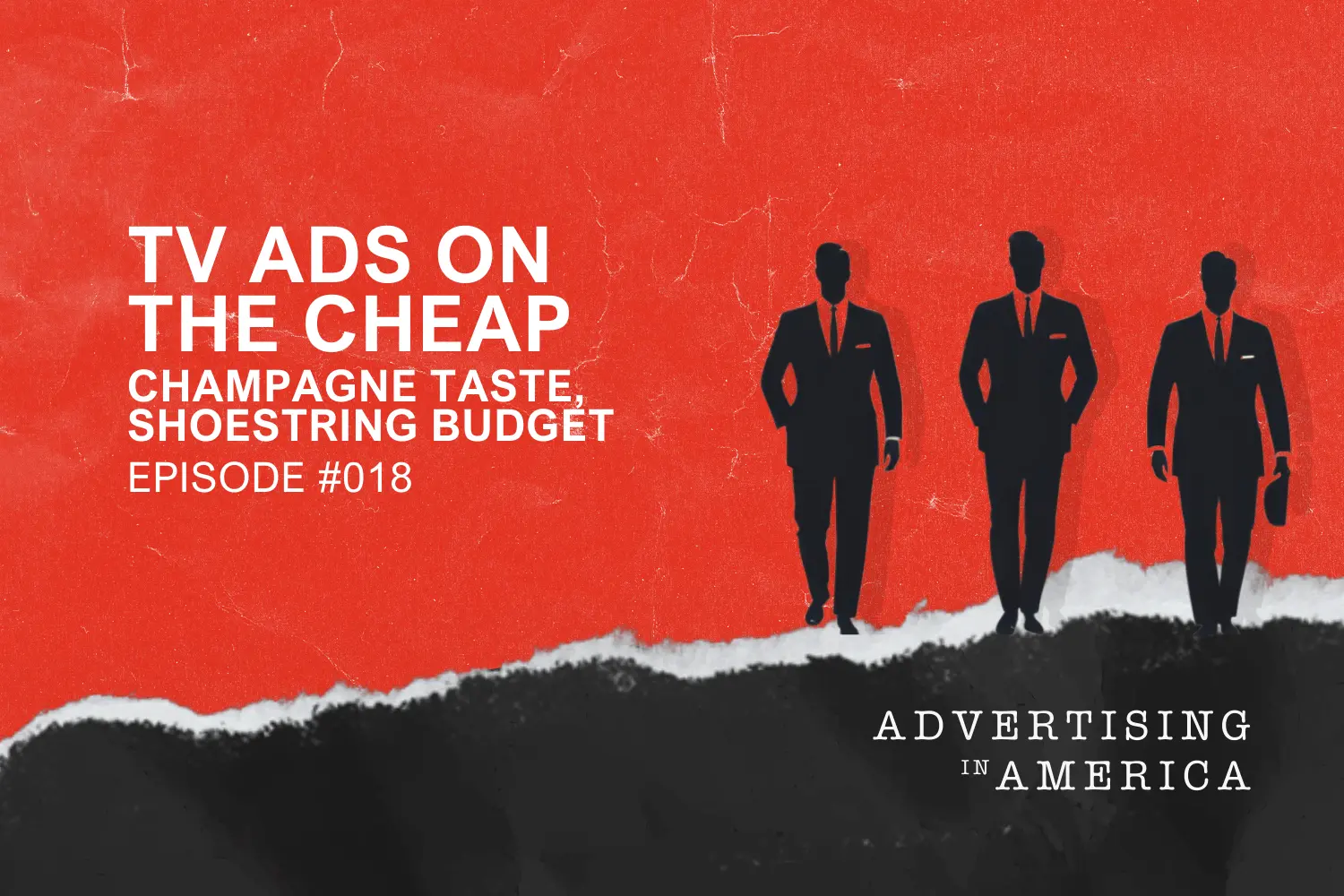
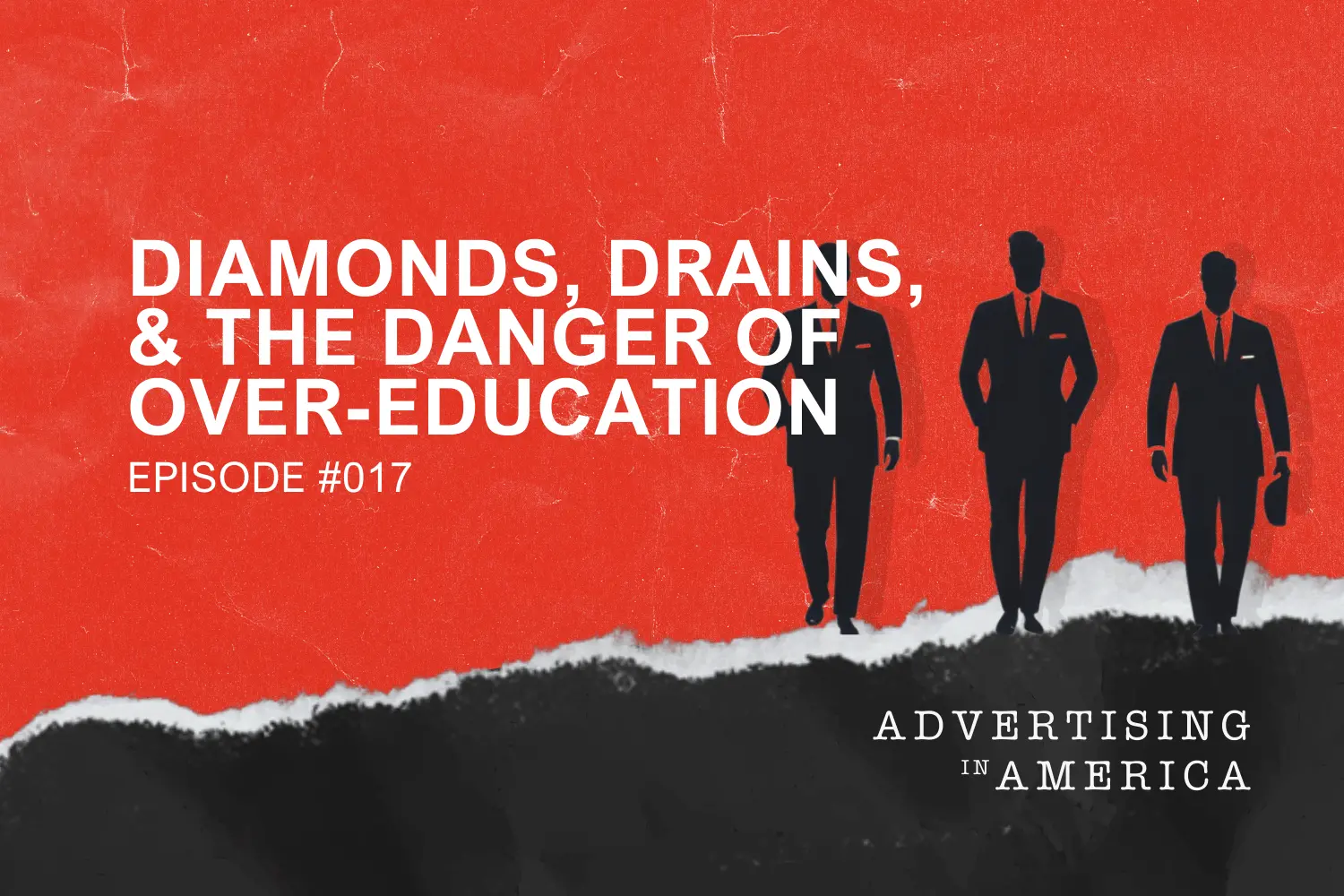
.webp)
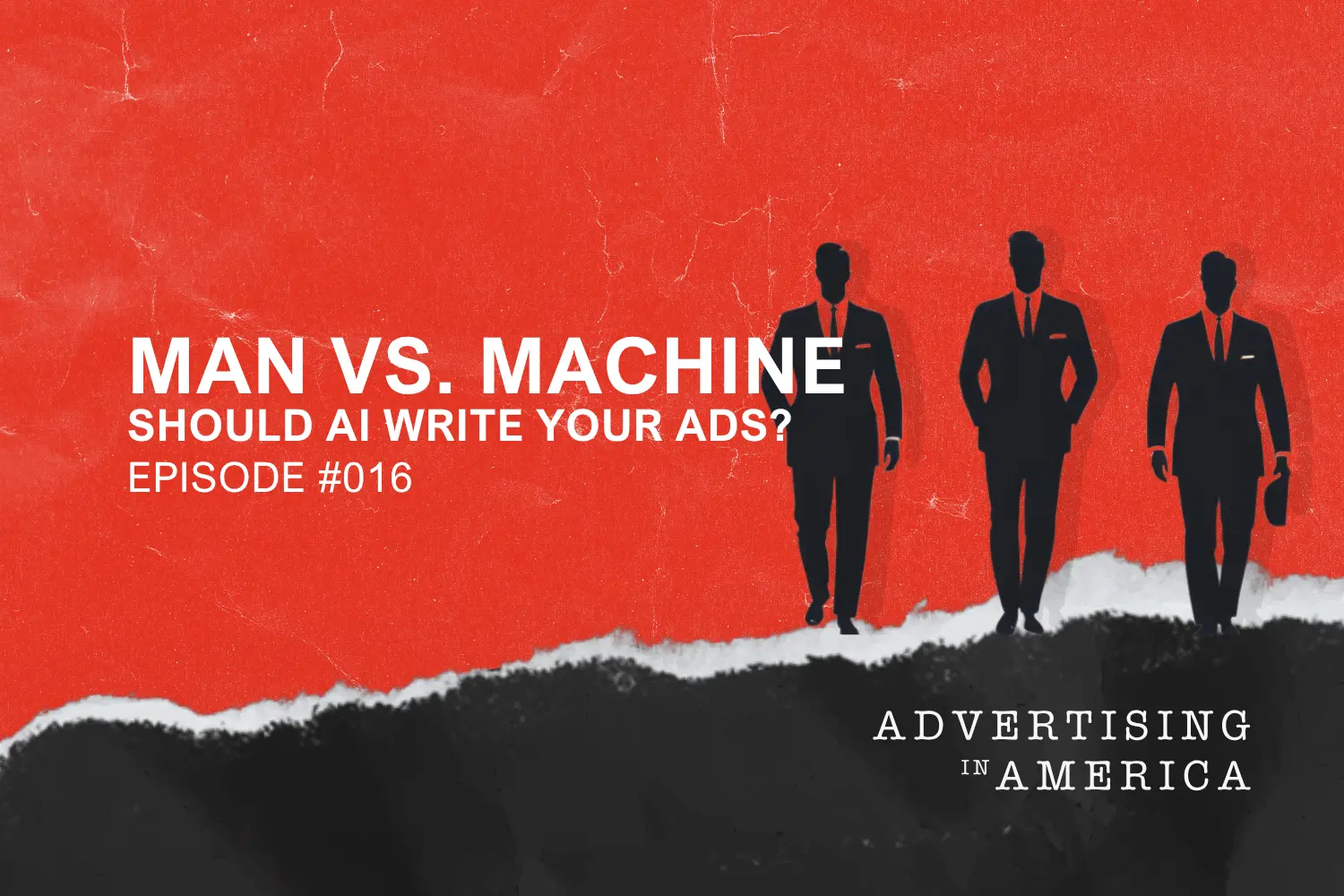










.webp)

.webp)
.webp)

%20(1).webp)
.webp)
.webp)




.webp)


.webp)






.webp)




.webp)
.webp)


.webp)
.webp)







